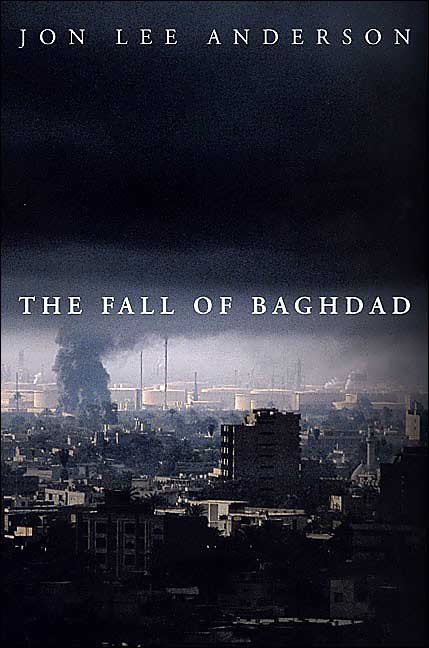That's the thrust of Jon Lee Anderson's decidedly nonpolemical account of life in pre- and post- “Mission Accomplished” Iraq. Anderson, who covers all things war-torn for the New Yorker, has written a unique book about a war that's yet to be officially deemed a quagmire but shows little sign of blossoming into anything better.
What makes The Fall of Baghdad different from so many other titles about the war in Iraq is that it's actually about the war in Iraq. One of only 16 American journalists to stay in Baghdad for the shock and the awe, Anderson paints complex portraits of a swath of Iraqis at no small risk to his own safety. His book reads in part like a string of profiles and a day-to-day narrative on the difficulties of reporting from a dictatorship wheezing its final breath.
What quickly emerges throughout the country, both before and after the invasion, is a pervasive culture of fear. In a conversation with Ala Bashir, a plastic surgeon and sculptor who unintentionally became the darling of Saddam, the point is made more explicit.
Anderson says: “The obvious thing for them to do if they wanted to avert war was to demonstrate in public and say: ’Mr. President, we love you very much, but please resign your office for the sake of the nation.' Ala Bashir nodded. ’That's true. And it's the one thing they cannot do, because they know they would be killed.'”
Sadly, this fear did not get toppled along with so many of Saddam's bronzed likenesses. One thing Iraqis weren't afraid to voice, however, were questions along the lines of: “Why is America doing this?” Is it an occupation or a regime change? According to Anderson, these were no rhetorical jabs—the people really wanted to know. In his portrait of prolonged chaos, Anderson presents a subtle argument as to why the rhetoric of liberation offers little comfort to a people accustomed to being acted upon, rather than acting themselves. Not to mention the Herculean task of building trust in a country that bombs your city one day and then stands by as it is looted the next.
It's possible to read this book and forget the divisive rhetoric from pundits and politicians. This is entirely refreshing. So is the fact that Anderson does not play down the totalitarian realities of Saddam Hussein's Iraq but illustrates its seemingly bizarre effects on everyday people. One day Iraqis pledge their lives to Saddam, the next they praise George Bush. It just depends on who's holding the gun.
Anderson may have his own ambivalence about the potential for democracy in Iraq, but judging from his reporting, it's not something we should expect soon. One only hopes the conflict between clerics and coalition-backed politicians produces something better than Baathism, more liberating than Sharia. Even if it's not what we'd recognize as democracy.









